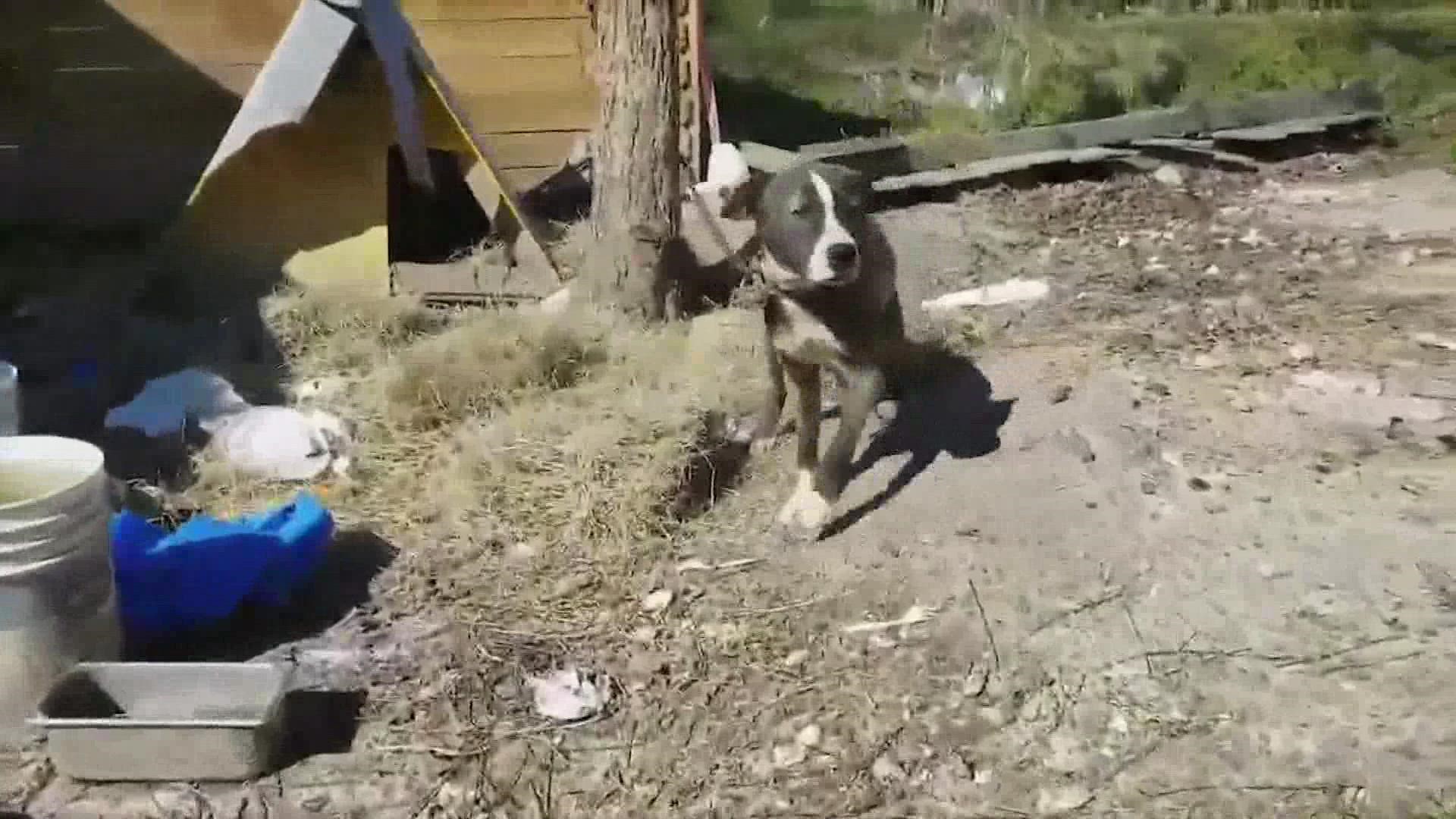AUSTIN, Texas — A new law to protect outdoor dogs in Texas is now in effect after a years-long battle by animal advocates.
Under the Safe Outdoor Dogs Act passed by the Texas legislature last fall, it is a criminal offense -- rather than a misdemeanor -- to unlawfully restrain dogs. That includes chaining them without shelter and water.
Editor's note: The video above originally aired in Oct. 2021.
The law also defines what qualifies as an adequate shelter for a dog, which includes protection from extreme temperatures such as the 2021 winter storm. It applies “rain, hail, sleet, snow, high winds, extreme low temperatures, or extreme high temperatures," as well.
The law also has more teeth by giving law enforcement power to enforce it without a 24-hour waiting period.
“One of the biggest hurdles has been the confusion and the vagueness about what’s considered appropriate confinement, appropriate shelter, appropriate care for the animals” Deborah Dobbs, president and founder of the SPCA of East Texas, told KHOU 11's sister station, KYTX earlier this month.
The biggest change would be the ban of chains and heavy weights as restraints which Dobbs explains is common in dog fighting.
“What has been used historically, and tragically, for dog fighting is tow chains and logging chains," Dobbs said. "Chains that I can’t even pick up. Chains that one dog would have to wear around its neck for its entire life to reach its food, its water and its shelter.”
Tethering or restraining a dog is not illegal, as long as it is in a humane way. The dog must be able to sit, stand and move around comfortably.
Gov. Greg Abbott took a lot of heat last year when he vetoed a nearly identical bill, but he added it to the third special session with slight changes.
Animal advocates have called for changes for year, criticizing the old statute’s lack of enforcement. The Texas Humane Legislation Network in 2015 found that not a single prosecution had been made under the law over the previous two years. But in his original veto statement, Abbott said Texas was no place for such “micro-managing” and “over-criminalization.
The bill was approved by wide margins in the House and Senate but received some opposition from rural legislators, who expressed worry that it would make it harder to restrain guard dogs or animals on ranches.

